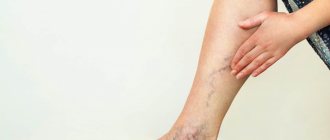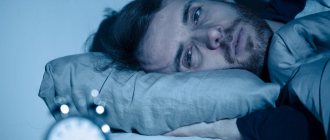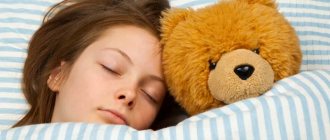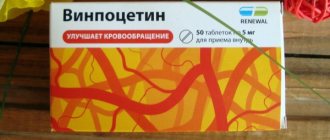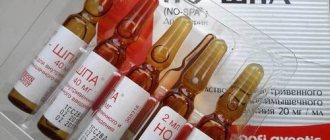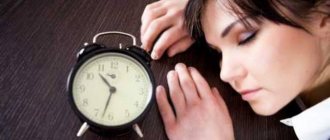Do you have trouble falling asleep, often wake up at night, or sleep very little? The feeling of weakness, weakness, exhaustion will not keep you waiting. Almost half of our population suffers from this problem. Who could suggest the best remedy for insomnia? Something that would be universal for men, women, young and old. Unfortunately, there is no such “miracle pill”. Sleep disorders are treated comprehensively. Medicinal herbs for insomnia can help you cope with the problem on your own. Try to start with them, it is quite safe, effective and useful!
Causes of insomnia
There are many reasons for sleep disturbances, from domestic to medical:
- Change of residence;
- Climate change;
- Pain of various origins;
- Metabolic disease;
- Stomach problems;
- The food intake system is disrupted;
- Nervous disorders;
- Depressive states.
In the last two cases, the judicious use of medicinal herbs can completely eliminate the sleep problem. Plants contain many useful components, some of which directly affect the functioning of the human nervous and cardiovascular systems.
- Flavonoids , which are included in most plants for insomnia, have the effect of muscle relaxation. The spasm that blocks the nervous system is relieved and a sedative phase begins.
- Cardenolides in medicinal herbs have antiarrhythmic and cardiotonic effects on the human body. In other words, in medicinal doses they help the heart function.
Passionflower
The medicinal properties of this plant are known throughout the world, however, as a remedy for insomnia, as well as a natural cure for epilepsy, passionflower began to be used only in the 18th century.
Today, researchers know that passionflower flowers not only create a hypnotic effect, but also have anxiolytic (reduce anxiety), sedative, anticonvulsant and analgesic properties.
The therapeutic effect of passionflower is determined by the phytochemicals contained in the plant. In particular, the beneficial effects on the central nervous system, and thus the hypnotic effect, are achieved thanks to apigenin, orientin, swertiamarin, quercetin, kaempferol and chrysin. These substances act as sedatives on humans.
Data from scientific experiments indicate [6] that drinking passionflower tea stimulates the production of GABA, resulting in relaxation of the body and easy falling asleep. In addition, passionflower helps relieve muscle spasms, improves heart function, normalizes blood pressure, and also helps cope with symptoms of stress and anxiety.
Although the list of beneficial properties of passionflower is quite large, tea from this plant is not suitable for everyone as a natural sleep aid. For example, it is contraindicated in pregnant women as it can cause premature birth or miscarriage. It is also not recommended to drink tea from this herb if you have low blood pressure, gastrointestinal diseases, or while taking antidepressants and sedatives.
Preparation: for 1 tsp. herbs take 150 ml of boiling water, you can boil for 1 minute and then leave for 20 minutes.
Hawthorn
Hawthorn flowers are collected before they open, in dry weather after the dew has disappeared. The berries are collected at the end of the ripening season. The shelf life of flowers is 2 years, berries - 8 years.
Contraindications
The fruits of red hawthorn are strictly contraindicated for people with a history of diseases of the cardiovascular system and kidneys.
Tea recipe for insomnia
| Ingredients | For 20 grams of dry hawthorn berries you will need 200 grams of water |
| How to cook | Pour boiling water over the berries in a thermos, close and wait 15 minutes |
| Treatment system | Take one hour before bedtime. Until the condition stabilizes. |
Contraindications and precautions
Although sedative herbal medicine has fewer contraindications than synthetic analogs, they still exist.
Contraindications for sedative herbs:
- children under 18 years of age;
- pregnancy;
- lactation;
- hypersensitivity to the components in the composition;
- severe depression accompanied by apathy;
- heart and liver failure, hypotension;
- chronic diseases of the gastrointestinal tract in the acute stage.
Some sedatives affect not only the central nervous system, but also the cardiovascular system, in particular they can reduce blood pressure, so they should be taken only after consultation with a cardiologist.
If you have a history of bronchial asthma or other allergic diseases, you need permission from an allergist.
Black elderberry
Elderberry flowers are dried naturally, and berry bunches are dried in dryers. The shelf life of flowers is 24 months, dry berries are stored for 6 months.
Contraindications
A large amount of fresh black elderberry berries is fraught with poisoning - diarrhea, vomiting. Young shoots are toxic. Roots and bark in overdose cause inflammation of the gastrointestinal tract and large intestine.
Fresh inflorescences contain amygdalin, which is converted into hydrocyanic acid.
Black elderberry can be used for treatment only in dried form.
Elderberries are contraindicated:
- pregnant women;
- nursing women;
- people suffering from chronic intestinal diseases;
- for ulcerative colitis;
- diabetes (diabetes insipidus).
Recipe for elderberry root decoction for insomnia
| Ingredients | 1.5 tbsp. l. dried black elderberry roots crushed in a coffee grinder and 250 ml water |
| How to cook | Boil over low heat for a quarter of an hour. Leave covered for 30 minutes. |
| Treatment system | Drink immediately before going to bed. Use as needed. The herb has a strong sedative effect. |
Valerian
Valerian rhizomes are collected in September or March. They are dug out with a shovel, then cleared of soil, washed and dried naturally. Drying in electrical cabinets is allowed at a temperature not exceeding 35° C. Stored in paper packages for no more than 3 years.
Contraindications
In case of chronic enterocolitis, valerian cannot be used for treatment. High probability of relapse of the disease.
Long-term treatment with valerian-based drugs can provoke:
- state of anxiety and restlessness;
- headache;
- constipation;
- disruption of the gastrointestinal tract.
Recipe for valerian infusion for neurotic insomnia
| Ingredients | Valerian roots ground in a coffee maker in the amount of 2 tsp. and half a liter of drinking water. |
| How to cook | Pour boiling water over valerian. Leave covered for 10-15 minutes. |
| Treatment system | Drink like regular tea, course 21 days. Valerian has pronounced properties of a mild sedative. |
Aromatherapy
Aromatherapy will not only help relieve symptoms, but also eliminate the causes that caused them. Moreover, such treatment will not cause any side effects.
Application of essential oils
In cases of severe nervous tension, which results in sleep disturbances, baths with the addition of essential oils will help. Just a few drops of your favorite essential oil (cedar, fir or lavender) can perform a miracle - the body will relax, anxiety will go away, negative emotions will disappear, a feeling of lightness and joy will appear, and at night the long-awaited sound and restful sleep will come.
Herbal cushion
During the lifetime of our great-grandmothers and great-grandfathers, there were no medicinal sedatives or sleeping pills. They coped with sleep disorders with the help of Mother Nature. An excellent remedy for insomnia is a herbal pillow, which includes sleeping pills and sedative plants. If you fill a pillowcase with a mixture of herbs, for example, oregano, St. John's wort, thyme, meadow geranium, lemon balm, mint, hop cones, etc., then you can forget about any insomnia for a long time.
Herbal baths
The same can be said about herbal baths. They will help relieve tension, calm your nerves and improve sleep. For example, if you add a decoction of wild rosemary, a water infusion of valerian roots, sweet clover herb, thyme, hop cones and wormwood herb to the water, then such a bath will quickly bring both your nerves and sleep back to normal.
Sweet clover
Harvesting of sweet clover occurs in the flowering phase. The top of the sweet clover is cut off. Dry in the shade in the fresh air. Before threshing, the leaves and flowers are separated from the stems. Dried raw materials are stored for 2 years.
Contraindications
Treatment with sweet clover-based products is permitted only under the supervision of a physician.
Sweet clover is a poisonous plant. Be sure to strictly follow the dosage prescribed by your doctor.
Overdose threatens:
- headaches;
- depressed state;
- vomiting;
- insomnia;
- internal bleeding, especially in people prone to it.
Sweet clover is prohibited for pregnant women; it affects smooth muscles and can cause premature birth and miscarriage.
Recipe for infusion of sweet clover for insomnia
| Ingredients | 2 tsp. sweet clover and 1/2 cup water. |
| How to cook | Place the herb in boiling water and leave for 4 hours. Then strain. |
| Treatment system | Drink three times a day half an hour before meals. Course 3 weeks. |
Sansevieria
This indoor plant looks very beautiful. Spicy green leaves serve more than just an aesthetic role in the home. They absorb some of the radiation from electrical appliances and fight headaches. If a person spends a lot of time at the computer and then cannot sleep, then he should place sansevieria or “pike tail” near his workplace. Sansevieria was included in the TOP 12 best plants that saturate the air with oxygen (according to NASA research). In addition, the “pike tail” is unpretentious in care.
The Magic of Sleep gives everyone GIFTS when purchasing an orthopedic mattress and mattress covers.
St. John's wort
The leaves and flowers of St. John's wort are used for medicinal purposes. Collection is carried out during the flowering period. After drying, the thick stems are separated. The raw materials are filtered. Storage no more than 24 months.
Contraindications
In men, long-term use of medications based on St. John's wort can cause erectile dysfunction.
St. John's wort is contraindicated:
- pregnant women;
- people suffering from hypertension;
- at elevated body temperature.
St. John's wort infusion recipe
| Ingredients | 3 tsp. powder or the same amount of finely chopped fresh leaves and inflorescences of St. John's wort + 200 grams of water. |
| How to cook | Place plant material in boiling water. Let it brew for 20 minutes. Add a little honey to the already cooled infusion and stir. |
| Treatment system | Drink as needed before bed. St. John's wort is good for calming and relieving anxiety. |
Contraindications
There is practically no need to talk about contraindications in the case of medicinal plants. Their action is too soft and gradual, the visible effect does not appear immediately. If you do not exceed the recommended dosage several times, there will be no critical harm to the body.
But when serious problems are diagnosed, long-term use of certain herbs can significantly worsen your health. So, eleutherococcus before bed cannot be called a good idea if a person already has trouble falling asleep. And motherwort in the morning is unlikely to improve performance. Some herbs affect the thickness of the blood and the functioning of individual organs - this must be taken into account when selecting them. We will talk further about the benefits and harms of individual herbs.
Fireweed angustifolia (Ivan-tea)
The medicinal raw materials of fireweed are leaves and flowers, which are dried in the fresh air. The roots are first dried in the shade, then in the oven. Fireweed flowers and leaves should be kept in glass or wooden containers for no more than 24 months.
The roots retain medicinal properties for no longer than 12 months.
Contraindications
The herb has virtually no strict contraindications. In case of severe overdose, it causes slight stomach upset.
Pregnant women and children under 3 years of age should drink it under the supervision of a doctor.
Recipe for a decoction of fireweed for sleepless nights
| Ingredients | Dry fireweed grass, crushed with a knife or in a mortar, 3 tbsp. l. and a cup of boiling water. |
| How to cook | Boil for 20-30 minutes. Strain and add boiled liquid to a volume of 200 ml. |
| Treatment system | The treatment course is 10-15 days. Three times a day with food, 2 tablespoons. For prevention, drink 1 tsp every day before bed. fireweed With a break of a week. The result is a gradual reduction in stress levels, which directly affects healthy sleep. |
When to start taking sedative herbs
If you are relatively young and almost healthy, it is best to use one of the ready-made mixtures sold in pharmacies. They are created in such a way as to have a comprehensive effect on the body and strengthen the nervous system. Take any medication in courses from 2 weeks to 3 months. The peculiarity of this treatment is that the body has a very gentle and gradual effect, which does not produce results as quickly as is the case with the use of synthetic drugs. But there are practically no side effects. This is a preventive use and is always better than treating an already established disease.
When certain problems in the body have already been diagnosed, you need to act on them more actively. You need to make your own collection, which will contain herbs selected taking into account the characteristics of your body. There are also two possible ways here. The first is to carefully study the effect of each plant, consult a doctor and put together the optimal collection. The second is to act experimentally. To understand whether a plant brings real benefits, its decoction or infusion must be taken for at least 1-2 weeks.
For most people, the optimal collection is one that includes valerian, motherwort and St. John's wort. You can add herbs to this base that will help you more.
Nettle
Nettle leaves and roots are taken to make medicine. The roots are dug up in late autumn, dried in electrical cabinets and retain their sedative properties for no more than a year.
The leaves are removed during the period of active flowering of the grass. Dry outdoors in the shade. Can be stored for 2 years.
Contraindications
- Nettle is prohibited for people suffering from thrombophlebitis.
- Pregnant women should not take nettles during the last trimester.
Nettle recipe - infusion for healthy sleep
| Ingredients | Dosage per day: 2 tbsp. l. dry nettle and 200 grams of water. |
| How to cook | Steam in a thermos for 10-15 minutes. Strain. |
| Treatment system | Drink several sips throughout the day. Until healthy sleep is restored. |
Herbs for good sleep: recipes and methods of use
Peppermint, lemon balm, chamomile, valerian, and motherwort will help you get rid of anxiety, relax, normalize sleep, and minimize the influence of external stress factors on the nervous system in the absence of organic brain disorders. Plants are most often used in the form of a decoction in order to use the aromatic component and achieve a faster calming effect.
| Plant name | Cooking methods | Dosage for decoction per 1 cup (200ml) | Total amount of tea per day |
| Mint | Water infusion, decoction | Infusion – 1 tbsp, decoction – 1 tea | 400ml |
| Chamomile | Infusion, decoction | 2 tbsp. | 400ml |
| Melissa | Infusion, decoction | Infusion – 1 tbsp, decoction – 1 tea | 400ml |
| Valerian | Alcohol infusion, tablets | Up to 25 drops for an adult, 2 tablets | Drops - maximum 4 approaches, tablets - no more than 6 |
| Motherwort | Alcohol infusion, decoction, infusion | Up to 30 drops, half a teaspoon for preparation at home with water | Maximum – 4 doses of drops; tea, infusion – 200-300ml |
Article on the topic: Use of Diazepam in neurology and psychiatry: instructions and reviews
You can correct and normalize sleep phases for insomnia using various herbal remedies. Both complexes created by pharmacists and independently combined ones are suitable here. At home, you can prepare the following herbal cocktail for insomnia:
- Mint (30g), motherwort (30g), valerian root (20g), hops (20g) are poured with a liter of boiling water. Insist until completely cooled, filter. Take 100g twice a day (after lunch and dinner, respectively). Course duration is up to 10 days.
- Dry peony roots (1 tablespoon) are poured into 0.5 liters of boiling water. The strained infusion is drunk three times a day, one tablespoon at a time. Course duration is 5-7 days.
- Horsetail (20g), bird knotweed (20g grass), hawthorn (30g flowers) are infused in 0.5 liters of boiling water. Take 4 times a day, 50g. Course duration is up to 10 days.
To avoid severe side effects, you should take only 1 type of infusion, and not all at once. If there is no visible effect after the full course of treatment, they seek additional examination (excluding possible tumors of the brain, nervous disorders of an organic type).
Red clover
Red clover inflorescences and herbs are dried under shelters in the fresh air.
Shelf life:
- flowers - two years;
- grass - one year.
Contraindications
Red clover-based medications should not be taken by pregnant or nursing mothers.
Clover tea recipe to restore healthy sleep
| Ingredients | Dry inflorescences and leaves - 1 teaspoon and 200 ml of boiling water. |
| How to cook | Mix the ingredients in a kettle. |
| Treatment system | Drink hot with honey, if you are not allergic to it, 30 minutes before bedtime. The course is two weeks, then a 7-day break. |
Peppermint
The top of the flower and the nearest leaves of mint are cut off at the initial stage of flowering. After drying, they are separated from thick stems. The collected raw materials retain their beneficial properties for up to 2 years.
Contraindications
Peppermint reduces the tone of blood vessels, so it is contraindicated for people with varicose veins.
Doctors do not recommend mint for children under 3 years of age.
Peppermint may cause a long-lasting drowsiness effect. You should be careful when operating equipment and when driving a vehicle.
Milk-mint sleepy tea recipe
| Ingredients | 1 tsp. peppermint and linden honey and 1/2 cup milk. |
| How to cook | Mix all ingredients. |
| Treatment system | Drink the entire serving immediately before bed. Until the situation stabilizes. |
Benefits of Herbs
Everything we need to get rid of ailments is provided by Mother Nature. Entire pharmacies grow in forests and meadows that can heal, rejuvenate and improve your health, without causing harm if you use natural medicines wisely. Our ancestors treated numerous diseases in this way. Compared to synthetic drugs, herbs:
- are inexpensive;
- do not cause terrible side effects;
- invariably help with any health problems, including insomnia.
You can make almost any potion yourself from herbs. They are used both separately and in complex therapy. But it is worth considering that among the plants there are also poisonous ones, so it is necessary to observe the exact dosage during treatment. To ensure that natural components do not cause harm, it is recommended to consult a physician before using them.
Tansy
For medicinal purposes, tansy flower baskets and part of the corymbose inflorescence are taken. Harvesting continues all summer. When using a dryer, it is important to ensure that the temperature does not rise above 40°C.
Place the dry herbal preparation in a glass jar. Use no later than two years after collection.
Contraindications
- Tansy herb tones the muscles, has an abortifacient effect - it is strictly prohibited for pregnant women.
- Due to mild toxicity, children under three years of age should not drink it.
- In addition, hypertension and gallstones are diseases in which tansy does more harm than good.
Recipe for three herbal teas to restore sleep
| Ingredients | 200 grams of drinking water and 2 tbsp. l. mixtures of herbs - tansy, oregano and calendula. |
| How to cook | Place the herb in a thermos and pour boiling water over it. Strain. |
| Treatment system | Use at night, course 3 weeks. |
Effect of calming herbs
Calming herbs is too general a name, which includes plants that sometimes act in radically opposite ways on the nervous system. For example, eleutherococcus tones blood vessels, elevates mood, and valerian strengthens the heart muscle, with its intake the heart beats more smoothly and calmly. You need to select calming herbs for your “portfolio” in accordance with the characteristics of your body. Below we will describe in detail what effect this or that herb has on our internal organs.
Motherwort
In mid-summer, motherwort stems with flowers, no longer than 40 cm, are cut off. The crushed dry material is stored in paper or fabric bags for about two years.
Contraindications
Strong allergen - use with caution for people prone to allergic reactions.
It is strictly forbidden to:
- with low blood pressure;
- with bradycardia - slow heart rate.
Recipe for alcohol tincture of motherwort for insomnia
| Ingredients | 2 tbsp. l. dried motherwort, 10 tablespoons of alcohol (70%) |
| How to cook | Infuse the herb in alcohol for a week. Keep the jar in a cool and dark place. |
| Treatment system | Mix 30-40 drops of alcohol tincture and 50 ml of any liquid. Taking time: 40 minutes before bedtime. Course 10-15 days. |
Best Calming Herbs
Chamomile
It is not entirely correct to call this herb sedative - it has a complex effect on the body. Chamomile is an excellent anti-inflammatory agent with an antibacterial effect, helps fight cystitis and colds, restores the integrity of the gastric mucosa, and strengthens the immune system. With the onset of autumn cold, chamomile tea is a good preventive remedy. Chamomile has been shown to lower sugar and cholesterol levels and strengthen the heart.
The great benefit of chamomile is that it contains vitamin C and nicotinic acid. It is the last component that allows us to talk about this herb as a sedative. A lack of nicotinic acid leads to a person developing a general loss of strength, including serious depression.
Chamomile has virtually no contraindications, but you should not take it uncontrollably, since in large doses it acts as a choleretic agent and affects the functioning of the liver. Chamomile is not recommended to be taken in combination with other calming herbs except valerian. Also, a negative effect on the body can be obtained if diuretics are taken simultaneously with chamomile tea, since their effect is significantly enhanced.
Motherwort
The herb has a wide range of uses and affects many body systems. Motherwort is especially good for excessive excitability of the nervous system. Indications for its use: coronary heart disease, metabolic disorders, headaches, seizures, insomnia and even thyroid diseases. Motherwort improves the quality of sleep, reduces excitability, improves the course of VSD, and makes it easier to endure menopause syndrome in older age.
Take motherwort in the form of an alcohol tincture, capsules (sold in pharmacies without a prescription) or a regular aqueous infusion of the herb. The method of administration is not of fundamental importance. Alcohol tincture is usually drunk 30-40 drops 2-4 times a day. You can take the powder (herb crushed in a coffee grinder) 1 teaspoon at a time. The package of tablets usually indicates the recommended dosage regimen.
Contraindications to taking motherwort internally are: pregnancy and breastfeeding, hypotension, stomach diseases (gastritis and ulcers). At the same time, you can take baths with the addition of herbs.
St. John's wort
The herb has an anti-anxiety and antidepressant effect, improves overall mood, and reduces signs of apathy and depression. In addition, St. John's wort can be used as a choleretic, antimicrobial and anti-inflammatory agent. It is not recommended for those who eat as part of some kind of diet, since St. John's wort affects gastric secretion and can increase the feeling of hunger. For those who have problems with the digestive tract and liver, St. John's wort will be very useful.
The herb is not recommended for use by people with diagnosed hypertension. St. John's wort is also not used orally for children until they reach 12 years of age. Pregnant and lactating women are recommended only for external use in the form of baths, aromatherapy or compresses.
Lavender
The main feature of the herb is that it has a calming effect directly on peripheral nerve endings, thereby providing an analgesic effect. Lavender is also considered effective for VSD, normalizes sleep, eliminates dizziness, relieves spasms, and prevents seizures.
The use of lavender in aromatherapy is widespread. For herbal pillows or aroma lamps, you can also use a mixture of lavender with hop cones and lemon balm in equal proportions. In pharmacies, lavender is sold in the form of an alcohol tincture, essential oil (usually used externally or in aroma lamps) or herb. All these products can also be used for bathing, for which there are no contraindications. Lavender oil when used externally can have side effects: swelling, hyperemia. When ingesting lavender oil in large dosages, stomach and intestinal problems sometimes occur. Grass does not lead to such consequences.
Melissa
Lemongrass should be included in your list of medicinal plants if you have any mental disorders, general nervous agitation, or sleep problems. Melissa stabilizes the frequency of contractions of the heart muscle and reduces pressure surges during stress. Taking the herb in moderate doses (as tea) is not contraindicated for pregnant women and children.
Those who have impaired liver function, low blood pressure, stomach ulcers or epilepsy should not take lemon balm.
Valerian
The herb acts on the body as an antispasmodic - it slows down the heart rate, reduces the excitability of the central nervous system, makes it easier to fall asleep, relaxes and dilates the coronary vessels.
Helps with migraines and functional disorders of the cardiovascular system. There are no contraindications, only hypersensitivity to valeric acid and valepotriates can become an obstacle to the use of valerian, but this happens very rarely. Uncontrolled use may result in drowsiness, weakness and decreased performance. Valerian can be combined with sedatives and drugs that lower blood pressure and affect heart function. The herb goes well with most medicines.
Mint
The plant has a multifaceted effect, including dilating blood vessels and relieving stimulation of the nervous system. Therefore, mint is used with caution at low blood pressure. Its anti-cancer effect has also been proven. Drinking peppermint tea regularly helps you focus and concentrate on work or study. When taking mint orally, a decrease in blood pressure is facilitated by a certain diuretic effect - at the same time swelling is relieved.
It is strictly not recommended for people with varicose veins to take mint; pregnant women can use it in a minimal amount. Ment should be prescribed with caution as its use has a negative effect on male sexual function and libido.
Ginseng
The plant is known for its rejuvenating effect on the body in general and on the skin in particular. The general strengthening effect is achieved by improving the course of all metabolic processes. Ginseng helps cleanse the body of toxins, stabilize the nervous system, and is useful for frequent stress and nervous disorders.
People with stable hypertension and those taking medications to lower blood sugar should avoid taking it, since ginseng also has a hypoglycemic effect. The herb is also contraindicated for epilepsy and acute viral infections.
Eleutherococcus
The plant stimulates and tones the central nervous system, strengthens the immune system, and improves brain function. It is usually prescribed for fatigue after heavy mental and physical exertion, in the postoperative period, and with low blood pressure.
The use of eleutherococcus is not allowed for children under 12 years of age and pregnant women, with increased excitability, heart problems, epilepsy, insomnia, and serious liver problems.
Hop
In addition to sedative, hops have anti-inflammatory, urinary and choleretic effects. This must be taken into account when selecting preparations with hop cones. The herb is added to herbal teas for insomnia and overexcitement. To improve the quality of sleep, it is useful to drink an infusion of hop cones mixed with motherwort with the addition of mint or lemon balm in a ratio of 10:10:1 (1 tablespoon of the mixture per 0.5 liter of boiling water, 100 ml before meals).
An overdose when consuming hops internally is fraught with nausea and vomiting, headaches, and heart rhythm disturbances. Hops should not be prescribed to pregnant women and children under 2 years of age.
Oregano
Indications for its use: insomnia, hypertension, atherosclerosis and neuroses. Has a mild laxative effect and improves liver function. There are no contraindications, but hypotensive patients should be careful when treating with oregano. Also not recommended during pregnancy.
Hawthorn
Prescriptions of hawthorn are usually associated with cardiac dysfunction - the drug acts as an antispasmodic and stimulates the functioning of the heart muscle. When taking hawthorn, a decrease in heart rate and blood pressure is observed. Diabetics should also pay attention to preparations with hawthorn - their blood sugar may noticeably decrease.
Contraindications to the use of this medicinal herb may include heart disease (especially those associated with heart rhythm disturbances). Pregnant women should not drink hawthorn infusion without a doctor's prescription. Consuming on an empty stomach may lead to intestinal cramps and vomiting. Not used for constipation.
Lily of the valley
Lily of the valley is a good diuretic and antispasmodic, dilates blood vessels. That is, the herb reduces blood pressure, relaxes and calms. It will be useful for people with problems with the endocrine system. Lily of the valley is often prescribed for heart failure, insomnia and neuroses. For internal use, you can use an infusion of one tablespoon of lily of the valley in a glass of boiling water in a thermos. Drink 50 ml before meals.
Lily of the valley is a strong drug and is contraindicated for endocarditis, kidney and liver problems. Pregnant women are prescribed with great caution. In case of an overdose, dizziness and weakness may occur, up to pronounced symptoms of bradycardia (possible cardiac arrest).
Black algae
The sedative and antispasmodic effect of the plant leads to a decrease in blood pressure. Indications for use: insomnia due to nervous tension, bad mood for a long period. The herb is toxic to the liver.
Yarrow
It is important not to tear the yarrow by the roots; a part of the stem no more than 15 cm long is cut off - the top of the flower and the leaves. In the shade with good ventilation, the grass dries in a week.
Store the plant for no more than 24 months.
Contraindications
Before treatment with yarrow, you should consult your doctor, as this herb has many contraindications:
- gastritis with increased secretion of gastric juice;
- peptic ulcer, due to increased acidity;
- stomach ulcer;
- tendency to blood clots;
- high blood clotting rate;
With long-term use of drugs based on yarrow, there may be side effects:
- headache;
- dizziness;
- nausea;
- skin rash.
Recipe for infusion of yarrow herb for insomnia
| Ingredients | A heaping tablespoon of dry yarrow and 300 ml of water. |
| How to cook | Steam for half an hour. Strain. |
| Treatment system | Drink 100 grams warm before meals, three times a day. The course is 21 days, then a week break. |
Jasmine
Scientists from Germany claim that jasmine aroma molecules, when released from the lungs into the blood, can replace expensive psychotropic sleeping pills. The aroma of the flower intensifies at night. To ensure a healthy and sound sleep, it is enough to move the pot with a houseplant closer to your sleeping place. Jasmine also effectively fights stress and helps improve your mood in the morning.
Dill
For treatment, the fruit of dill is taken - a grayish-brown two-seed, leaves and thin stems. The temperature in the cabinets should not exceed 40°C, but it is better to dry it naturally.
For long-term storage, use glass jars. Shelf life 2 years.
Contraindications
Garden dill in excess of a dose causes:
- temporary visual impairment;
- fainting;
- decreased vitality.
You should not use dill to treat pregnant women and people with persistently low blood pressure - hypotension.
Dill tea recipe for insomnia and anxiety relief
| Ingredients | A tablespoon of finely chopped fresh dill, 200 grams of boiling water or 2 tsp. seeds ground in a mortar and 400 grams of boiling water. |
| How to cook | Insist in both cases for 2 hours. Strain. |
| Treatment system | Half a cup three times a day before meals. And a whole cup before bed. |
Thyme (Thyme)
To make medicines, only the leafy part of the thyme, the twig, is taken.
The collection is carried out in the middle of flowering. After drying and threshing, the raw materials must be sifted.
Keep:
- in a dry, cool room;
- in closed containers;
- no longer than 2 years.
Contraindications
- Peptic ulcers of the intestines and stomach;
- Pregnancy.
Recipe for thyme tincture with alcohol for insomnia and quick relief from stress
| Ingredients | 50 grams of medical alcohol (70%), 10 grams of dry thyme. |
| How to cook | Mix in a glass jar with a tight-fitting lid. Leave for a week in a dark place. Then strain through four layers of gauze until completely transparent. |
| Treatment system | A couple of hours before bedtime, add 30 drops of thyme tincture to tea. Course 3 weeks. To achieve a quick relaxing effect, dilute 50 drops in liquid once. |
[author_bq]
Soothing herbs during pregnancy and for children
It is better for pregnant women not to drink calming herbs on their own, especially in the first trimester. Because it is at this time that the child’s organs and systems are formed. Throughout pregnancy, you need to be very careful with taking medications and herbal remedies. Some herbs act directly on muscle tone (the uterus, in particular), which can sometimes even lead to miscarriage.
Usually, doctors do not hesitate to prescribe herbs such as chamomile and valerian, which are difficult to overdo, even if the dosage is greatly increased. Melissa, mint, chamomile - these herbs are sold in many supermarkets as tea, and you can use it 2-3 times a day for preventive purposes, which will definitely not harm the health of either the child or the body of a pregnant woman.
It happens that children become noticeably nervous and capricious. For some time, you can serve them a mixture of mint, trefoil, valerian and hop cones in a ratio of 2:2:1:1. For a day, one teaspoon of the mixture is enough, which is poured with a glass of boiling water. The finished infusion is divided into two servings and taken morning and evening. In the future, it is better to consult your doctor about treatment.
For children who have trouble sleeping, you can make warm lavender tea before bed. A pillow stuffed with crushed herbs, the same lavender, which has a very pleasant smell, gives a good effect. This will already be aromatherapy - a kind of subsection of more general herbal medicine.
Not everyone has the patience to stuff a pillow with herbs; you can do it easier. Buy a special aroma lamp and turn it on in the child’s room 2-3 hours before bedtime using a soothing herb with a pleasant smell.
